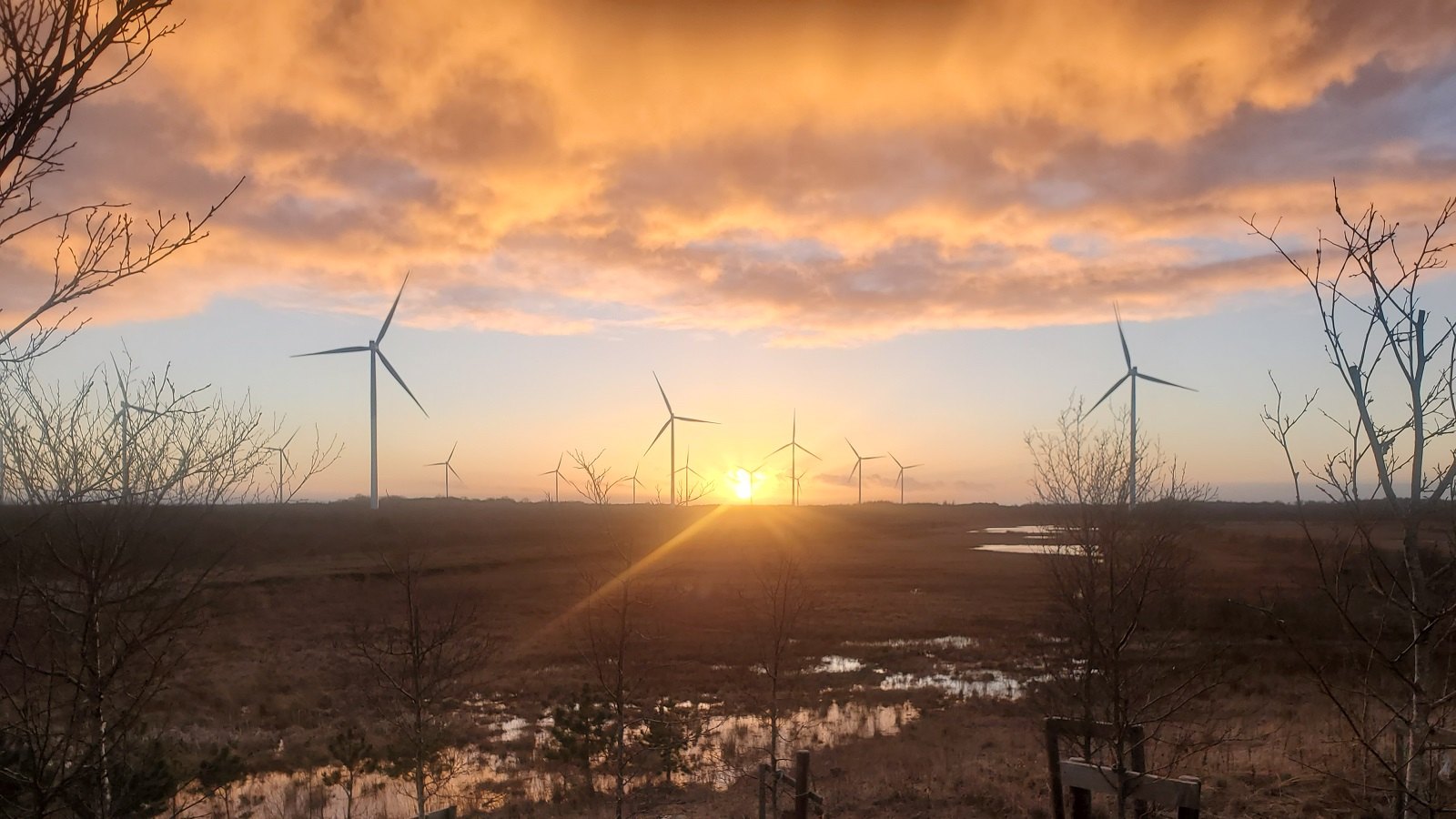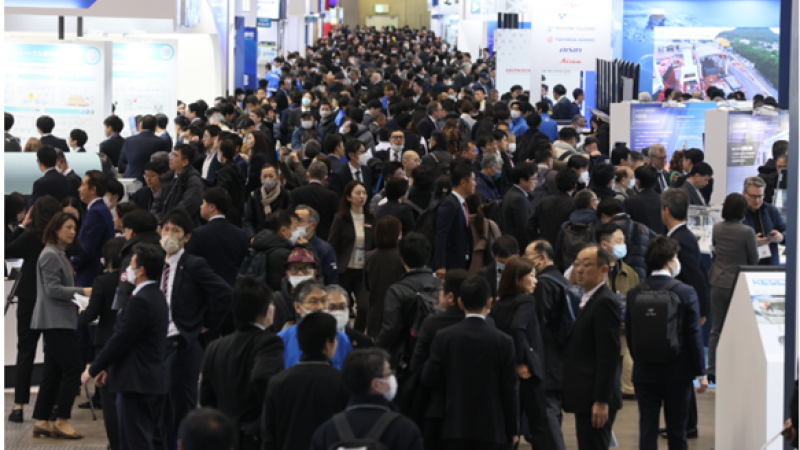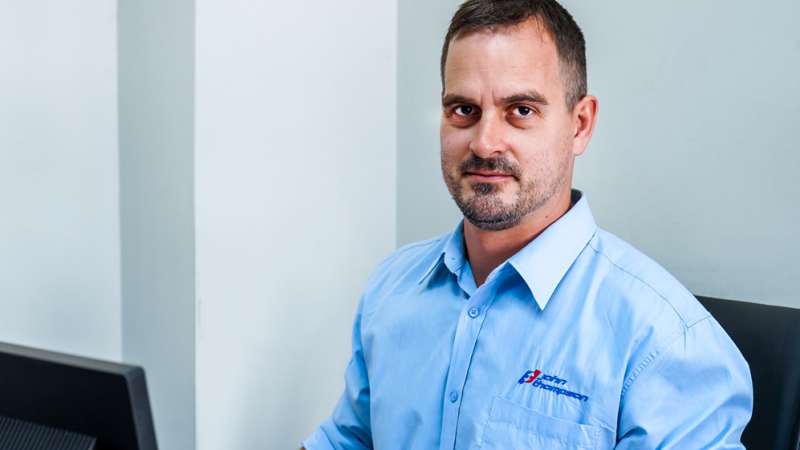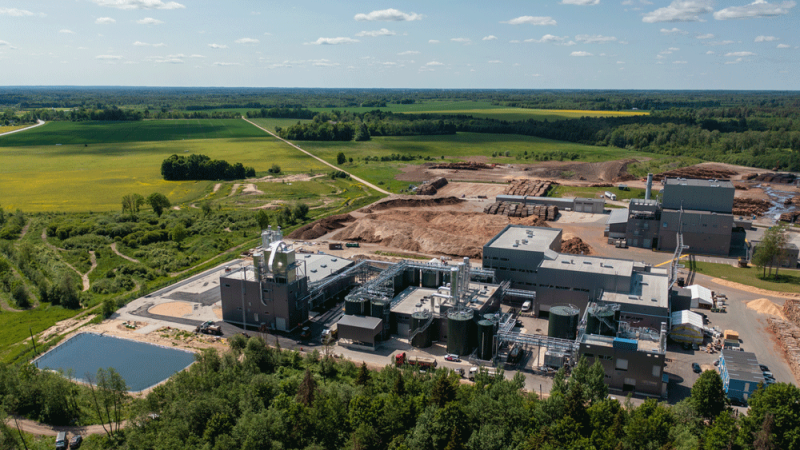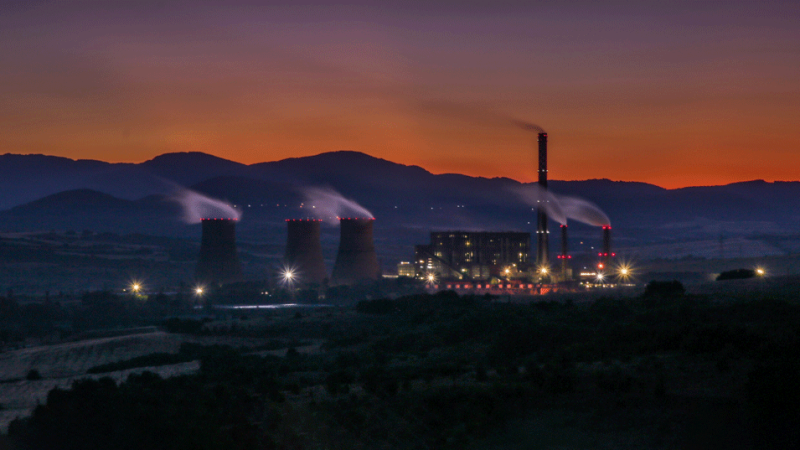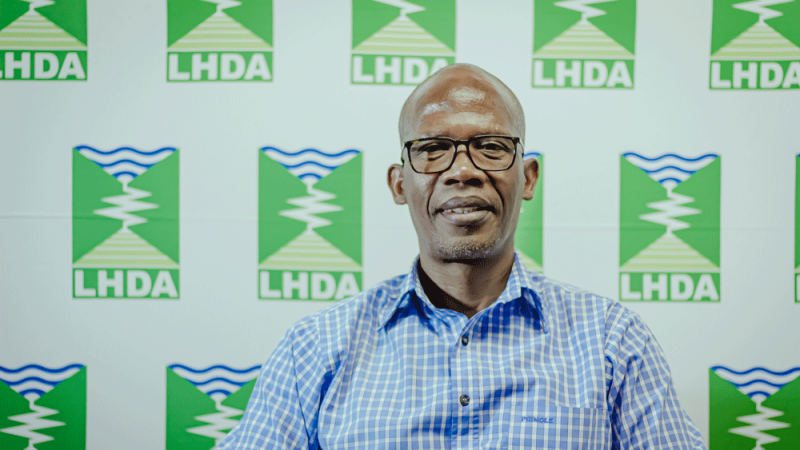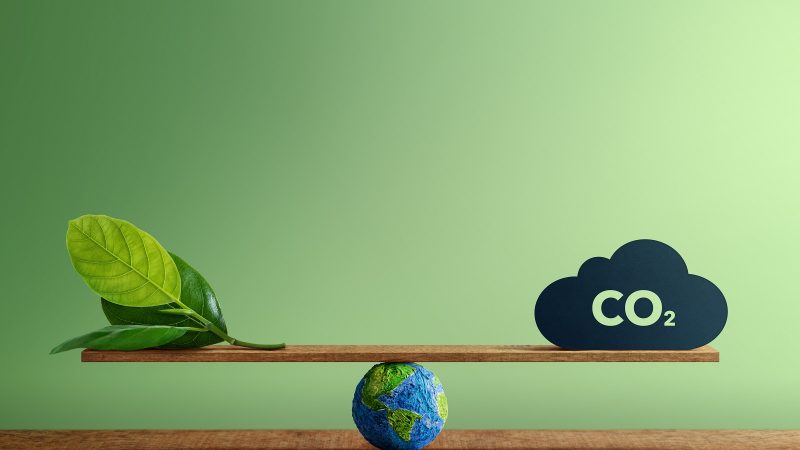Bord na Móna is on track to become the primary supplier of renewable electricity in Ireland. For most of the last century the company supplied indigenous fossil fuels to the energy sector, enhancing security of supply. A little over a decade ago the company decided to diversify its business model by adding two new divisions, including their renewable energy division, and is now recognised as one of the leading renewable energy companies in Ireland.
Bord na Móna is focused on an ambitious plan to help Ireland achieve net zero emissions by 2050. This involves the elimination of the use of ‘Móna,’ the Gaelic word for peat, from their fuel mix, breaking a near 80-year association with an indigenous fossil fuel that has served Ireland well.
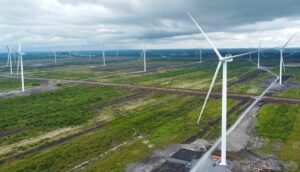
Expanding and Renewing
Bord na Móna’s key asset is its land bank, previously used to mine milled peat. John Reilly, Head of Renewable Energy, refers to the land bank as “One of our greatest strategic assets because it provides us with the opportunity to deliver renewable energy assets on a significant scale. Some of the largest onshore windfarms anywhere in Europe currently sit on our turf, with a typical installed capacity of 100MW. We have a number of sites under development which will have circa 300MW of wind and solar power co-located with storage technologies.” This provides Bord na Móna with the ability to produce dispatchable zero carbon electricity, using a combination of renewable generation at scale, with flexible technologies and storage as back-up.
John Reilly is clear about the serious challenges that have accompanied the transition of the company into a renewable energy leader. “I have been with the company for 15 years now and I have witnessed some very significant changes in that period. Some of the steps we have had to take as we transitioned away from a fossil fuel, which was at our core for so long, were difficult. That business was a very significant employer regionally and closing the door on fossils was very difficult indeed, given the impact that decision had on employment levels. However, it was absolutely the right thing to do, ensuring as it did, the survival of the company as it shifts to cleaner, more sustainable forms of energy.” Bord na Móna’s precursor was the Turf Development Board, established in 1934 and the company has employed thousands of people across the midlands of Ireland during its near 100 years in operation. However, the transition away from peat has seen approximately 500 people leaving the organisation as the transition picked up pace in recent years. The good news is that employment numbers are now rising again, with the focus on climate solutions.
The energy transition sees Bord na Móna involved in the delivery of energy infrastructure, such as onshore wind, energy networks and power plants. The public’s acceptance of infrastructure is not always a given, so the planning process can be protracted and difficult. John Reilly refers to the importance of public engagement regarding the energy transition and the twin challenge of climate and energy security. Explaining the need to deliver energy infrastructure is paramount. ‘It can be an enormous challenge for us, but I like to think we’re constantly improving our approach to this important issue.”
Bord na Móna directly employs 1,600 staff, with the business firmly back on a growth trajectory interest from apprentices and graduates seeking employment with the company is strong. Diversity and inclusion are key to a vibrant workforce and there are 25 different nationalities represented in the organisation today. Bord na Móna’s increasing online presence and the use of social media in its recruitment drives is proving successful. John Reilly reflects “Careers in the renewable energy sector are extremely popular, with sustainability high on employees’ agendas. Working in the sector gives a real sense of making a difference. But we are now competing for talent on a global scale in the sector, with hybrid working providing people with more choice in terms of how and where they work. Investing in our people is a key element of the strategy to attract and retain talent”
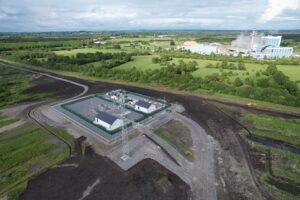 “Looking forward, we will expand our renewable energy business as we remove peat, a carbon-intensive fossil fuel, completely from our energy mix by 2023. Our growth trajectory will see our portfolio dominated by technologies such as offshore and onshore wind, solar and biomass resulting in more than 90% of the energy we generate coming from renewables by 2025. We are beginning to focus on how we squeeze the last 10% of fossil fuels out of our business.” The intention is to ensure only gas, the cleanest fossil fuel, is used in the back-up flexible capacity which supports deployment of intermittent renewables. Bord na Móna will then focus on decarbonising the gas which represents a massive challenge, but one the company is up for. Options such as biomethane/biogas and green hydrogen are being actively considered. Green hydrogen will be produced using excess renewable electricity generated from its portfolio and decarbonising the gas used will ensure an abundant supply of clean, affordable, and reliable energy.
“Looking forward, we will expand our renewable energy business as we remove peat, a carbon-intensive fossil fuel, completely from our energy mix by 2023. Our growth trajectory will see our portfolio dominated by technologies such as offshore and onshore wind, solar and biomass resulting in more than 90% of the energy we generate coming from renewables by 2025. We are beginning to focus on how we squeeze the last 10% of fossil fuels out of our business.” The intention is to ensure only gas, the cleanest fossil fuel, is used in the back-up flexible capacity which supports deployment of intermittent renewables. Bord na Móna will then focus on decarbonising the gas which represents a massive challenge, but one the company is up for. Options such as biomethane/biogas and green hydrogen are being actively considered. Green hydrogen will be produced using excess renewable electricity generated from its portfolio and decarbonising the gas used will ensure an abundant supply of clean, affordable, and reliable energy.
As the demand for green electricity grows, so will its portfolio, with an installed capacity of 3GW targeted by 2035. A recently announced partnership with Ocean Winds to develop off-shore wind capacity in Irish waters is central to that ambition. This expansion in capacity will see Bord na Móna invest over €2bn in new renewable assets and at the core of this strategy is the development of green energy parks on its landbank, where renewable generation can be co-located with 21st century demand. Ireland is currently home to some of the biggest tech companies in the world, with many of the major players in the ICT sector globally having their European Head Quarters in Ireland. The company is keen to support the continued growth of the sector by helping to meet its energy needs in a secure, affordable, and sustainable manner. By evolving their energy park concept, they will guarantee customers a secure supply of carbon-free electricity. John Reilly “As we expand our renewable portfolio Bord na Móna hopes to have some of the biggest companies in the world securing their green energy supply from us. This is a key ambition for the business as we aim to make a difference and a positive contribution to the energy transition.”

